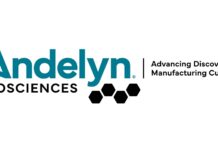Enhanced Mechanism Of Angiogenesis Inhibition And Anti-Tumor Activity In Renal Cell Carcinoma Investigated
World pharma today/Press releases /-Eisai Co Ltd. announced that it has presented the results of non-clinical research investigating the combination of Eisai’s in-house developed anticancer agent lenvatinib mesylate (lenvatinib) and anticancer agent everolimus at the American Association for Cancer Research (AACR) 107th Annual Meeting. The presentations concerned an analysis of the mechanism of action that leads to enhanced inhibition of angiogenesis as well as using murine models to demonstrate an anti-tumor effect on renal cell carcinoma.
As the results of research presented at the AACR meeting,1 when the combination of lenvatinib (7.5 mg/kg) and everolimus (15 mg/kg), lenvatinib alone (10 mg/kg) or everolimus alone (30 mg/kg) were administered to model mice in which tumor angiogenesis had been induced from overexpression of either vascular endothelial growth factor (VEGF) or fibroblast growth factor (FGF), a substantial inhibitory effect on tumor growth was observed in both types of mice that had been administered the combination therapy compared to the higher doses of lenvatinib alone or everolimus alone. As subsequent in vitro studies, in VEGF and FGF stimulated human umbilical vascular endothelial cells, it was observed that lenvatinib inhibits VEGF and FGF receptors while everolimus suppresses the downstream signaling pathways for these two receptors, confirming that enhanced antiangiogenic activity is due to the mechanisms of action of both agents combined. Furthermore, it is suggested that the combination of lenvatinib and everolimus synergistically enhances inhibitory activity against FGF-induced angiogenesis as well.
In separate research findings,2 in a xenograft model where human renal cell carcinoma cell strains had been implanted subcutaneously into mice, when the combination of lenvatinib (10 mg/kg) and everolimus (30 mg/kg), lenvatinib alone (10 mg/kg) or everolimus alone (30 mg/kg) were administered to these mice, pronounced apoptosis in tumor cells was observed only in the group that received combination therapy. Furthermore, a decrease in microvessel density for lenvatinib alone and a decrease in the proportion of proliferative cells for everolimus alone were seen, and both these effects were observed in the combination therapy group. These results suggest that treatment of lenvatinib in combination with everolimus causes a strong antitumor effect by combining the potent antiangiogenic activity of lenvatinib as well as direct antitumor activity of everolimus.
Eisai remains committed to providing further clinical evidence for lenvatinib aimed at maximizing value of the drug as it seeks to contribute further to addressing the diverse needs of, and increasing the benefits provided to, patients with cancer, their families, and healthcare providers.
Media Inquiries:
Public Relations Department,
Eisai Co., Ltd.
+81-(0)3-3817-5120
About lenvatinib mesylate (generic name, “lenvatinib”, product name: Lenvima®)
Lenvatinib is an orally administered multiple receptor tyrosine kinase (RTK) inhibitor with a novel binding mode that selectively inhibits the kinase activities of vascular endothelial growth factor (VEGF) receptors (VEGFR1, VEGFR2 and VEGFR3) and fibroblast growth factor (FGF) receptors (FGFR1, FGFR2, FGFR3 and FGFR4) in addition to other proangiogenic and oncogenic pathway-related RTKs (including the platelet-derived growth factor (PDGF) receptor PDGFRα; KIT; and RET) involved in tumor proliferation.
Currently, Eisai has obtained approval for lenvatinib in over 40 countries including the United States, Japan, Europe, Korea and Canada as a treatment for refractory thyroid cancer, and is undergoing regulatory review in countries throughout the world including in Asia, Russia, Australia, Brazil and Mexico. More specifically, Eisai has obtained approval for the agent indicated in the United States for treatment for locally recurrent or metastatic, progressive, radioactive iodine-refractory differentiated thyroid cancer, in Japan for the treatment of unresectable thyroid cancer, and in Europe for the treatment of adult patients with progressive, locally advanced or metastatic differentiated (papillary, follicular, Hürthle cell) thyroid carcinoma (DTC), refractory to radioactive iodine, respectively. Meanwhile, Eisai is conducting a global Phase III study of lenvatinib in hepatocellular carcinoma, Phase II studies of lenvatinib in several other tumor types such as endometrial carcinoma and biliary tract cancer, as well as a Phase Ib/II study of lenvatinib in combination with an immune checkpoint inhibitor.
About Renal Cell Carcinoma
The number of patients with renal cancer was estimated to be approximately 338,000 worldwide, including approximately 58,000 in the United States, 115,000 in Europe and 17,000 in Japan.3 Renal cell carcinoma comprises more than 90% of all malignancies of the kidney,4 and occurs when malignant cells are found in the lining of the tubules of the kidney. The incidence of renal cell carcinoma in people aged in their late 50s is rising, and is more likely to affect men than women. For advanced or metastatic renal cell carcinoma that is difficult to treat with surgery, the standard treatment method is molecular targeted drug therapy, however with low 5-year survival rates, this remains a disease with significant unmet medical need.
- Mitsuhashi K, et al. Effects of Lenvatinib Mesilate in Combination with Everolimus on VEGF and FGF-driven Angiogenesis and Tumor Growth.AACR Meeting Abstract, 2016; 3262
- Adachi Y, et al. Lenvatinib mesilate in Combination with Everolimus Demonstrated Enhanced Antiangiogenesis and Antitumor Activity in Human RCC Xenograft Models. AACR Meeting Abstract, 2016; 3264
- Globocan 2012: Estimated Cancer Incidence, Mortality and Prevalence Worldwide in 2012, http://globocan.iarc.fr/
- Eble J.N, ed. Pathology and Genetics of Tumours of the Urinary System and Male Genital Organs. World Health Organization Classification of Tumours, 3rd ed. IARCPress, Lyon, 2004.


















